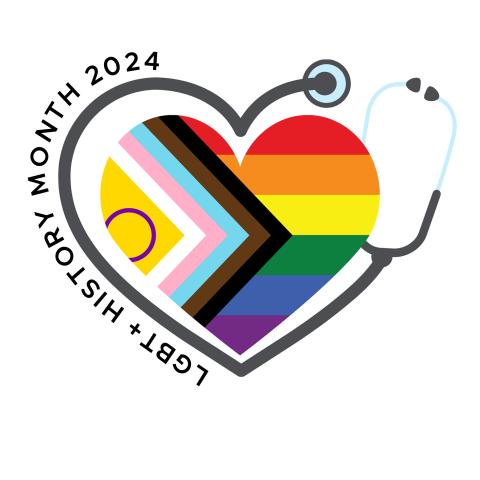General Secretary Blog : Celebrating LGBT+ History
Trigger warning: This blog references self-harm, suicide ideation and attempted suicide.
LGBT+ History Month was started to uncover a previously hidden history - every February, a different theme is highlighted. 2024 focuses on the celebration of LGBT+ peoples’ contribution to the field of Medicine and Healthcare - both past and present.
Educational psychologists play a key role in contributing to people’s health - especially their mental health. We work in the NHS (e.g. supporting Mental Health in Schools Teams), in education settings, social care, youth justice and our communities; promoting wellbeing and providing therapeutic interventions where these are needed.
LGBT+ people have long experienced, and continue to be affected by, significant health inequalities. The statistics on the mental health of LGBT+ young people in particular are especially alarming.
One recent study (Jadva, et al., 2023) of 3,713 LGBT+ adolescents in the UK found that:
- 65% had self-harmed.
- 74% had thought about suicide.
- 26% had attempted suicide.
- 45% had experienced bullying.
Out of this sample, young people identifying as trans were almost four times more likely to report self-harm, over three times more likely to have thought about suicide and 50% more likely to have attempted suicide. Regarding protective factors, a more positive school experience was found to reduce reports of self-harm and attempted suicide by 40% and suicidal ideation by 65%.
Other research (McDermot, et al., 2023) highlights that LGBT+ young people’s mental health can be protected by whole school approaches that:
- Promote LGBT+ young people’s feelings of recognition, affirmation and belonging.
- Provide opportunities for talking and accessing support.
- Develop staff confidence and understanding of LGBT+ experiences and identities.
Systematic review of qualitative literature (Wilson & Cariola, 2020) further identifies protective factors as:
- Access to peer support groups and having someone to talk to.
- Feeling connected with peers.
- Experiencing school as a safe and inclusive environment, including sports and extracurricular activity.
- Competent and supportive adults.
- Acceptance and unconditional love/positive regard, especially from family members.
In conclusion, Wilson and Cariola (2020) state: ‘For this population much of their time is spent in their family, school or community environment, where acceptance and the ability to express their authentic self is paramount to mental well-being’ (p. 203).
There is a vast literature identifying the numerous risks to the mental health of LGBT+ young people as well as the factors which protect them. These three studies are a tip of the iceberg in what is a growing field of research but reflect recommendations made by UNESCO (2016) in relation to the prevention of violence based on sexual orientation and gender identity/expression.
Everyone has the right to live a happy, fulfilled life. We need our families, schools, communities and society to best understand how to facilitate the enjoyment of this right. Educational psychologists, as science practitioners, are well placed to identify what that looks like for all young people, but especially those who need our support most.

Consultation on gender questioning children
This month, the Department of Education is consulting on its draft guidance on ‘Gender Questioning Children’ – a consultation the AEP will respond to.
If you haven’t yet done so, please share your views via our survey and let us know more about what protects and harms this highly vulnerable group.
Safe Space Webinar
We also invite members to come along to our first ‘Safe Space’ webinar next week – focusing on Trans Experiences - on 27th February at 4pm.
Latest News & Activity

